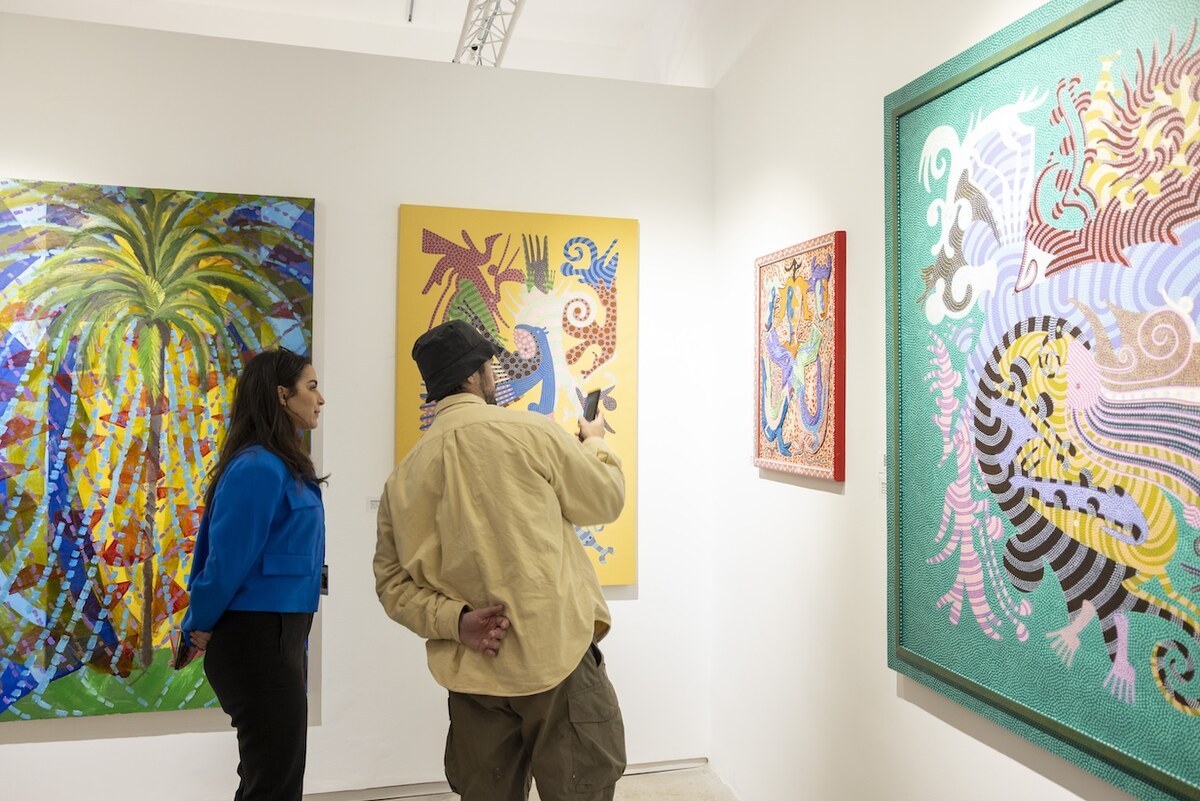LAHORE: Palestinian author and essayist Adania Shibli posed a simple question at her two sessions at the Lahore Literary Festival on Sunday: what is truth and, if it exists, who has the power to tell it?
As she deconstructed language and history during the course of the two sessions — ‘Palestine’s Literary Force’ and ‘Empires and New Homelands’ — she expounded on the honesty of fiction and argued for resistance to the hegemony of ‘factual’ histories on behalf of the people being erased from them.
Most of Shibli’s work and thought is born out of her experience as a Palestinian, born in a small village near Jenin in the West Bank in 1974. Her inspirations are that experience, as well as what she described as the sheer love for the Arabic language in which she writes all her fiction.
Because “Arabic is beautiful, it’s like an invitation to write,” she said, and a little freer from the power dynamics that come with English, a language she jokingly prefers for her academic writing, which is entwined in those very power dynamics.
Shibli received the Young Writer’s Award in Palestine from the A.M. Qattan Foundation for her debut novel Touch (Masaas) in 2001, when she was only 27. Now at 49, with a Ph.D. in media and culture studies and a postdoctoral fellowship, Shibli is a novelist, an essayist and a teacher, speaking six languages and dividing her time between Jerusalem and Berlin. She also named her collection of essays ‘In Dialogue with Edward Said,’ perhaps the most famous Palestinian intellectual of our times, and from whom she takes a lot of inspiration in defining the self and the ‘other.’
This is not the first time Shibli has been to Lahore. She was last here in 2020 visiting different colleges like BNU, in collaboration with the Lahore Biennale Foundation, and LUMS.
In an interview with Arab News, Shibli said she had been writing fiction all her life:
“For me fiction is almost like a practice, a way of learning how to live, constantly. Each time you’re writing you’re living these stories too.”
When she started off, Shibli quickly discovered that “Palestine as an experience” was a way to explore and experiment with a different form of literature:
“One that doesn’t require those hierarchical relations in the writing process, or the power relations. How one can disengage with them. I think Palestine is a teacher for me in that sense because it is about challenging the held dispositions, and how to depart from them.”
In one of her panel discussions, the author said “fiction can tell us things that non-fiction cannot.”
“In non-fiction, the oppressor wants to control the narrative, deny the atrocities,” Shibli said, “People’s stories were suppressed, they did not exist.”
“History is an instrument that constantly erases the colonized, the ‘other’. Literature is perhaps where history stops. It’s almost where history is not welcomed. History is focused on the center but what about those on the margins?”
This is the subject of her third book, ‘Minor Detail,’ published in 2020 and longlisted for the Booker Prize, which talks about the horrific rape and murder of a Palestinian teenager in 1949 — a year after the Nakba, the displacement of 700,000 Palestinians from their homes — at the hands of an Israeli Defense Force platoon. An unnamed narrator born 25 years after this event chances upon the case and decides to delve into the missing history.
What follows is a harrowing tale of violence and erasure, of occupation and things seemingly lost to time. As the narrator consults several maps to find out more clues about the crime, one map produced by Israeli authorities has no Palestinian villages before the Nakba.
Through her book, Shibli said, she wanted to reconstruct that “missing history.”
“We used to go to picnics as kids,” she said. “We were picking up plants and taking care of trees in villages that people were expelled from. As if we needed to take care of the plants they left, carry their lives in our bodies.”
When asked if there were parallels between her home country and Kashmir, a Himalayan region claimed by both Pakistan and India, she said:
“I don’t know enough about [the story of Kashmir] to comment on its occupation, but obviously in these cases it’s more about extending a sense of care ... It’s more about solidarity.”































